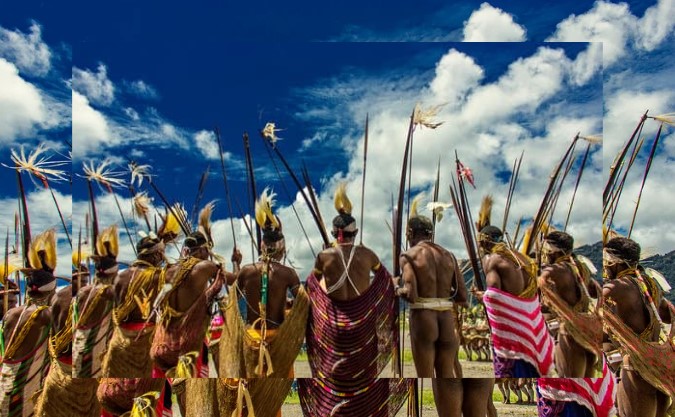Every year, on August 9th, the global community comes together to commemorate World Tribal Day. The World Tribal Day 2023 is dedicated to advocating for and safeguarding the rights of indigenous populations around the world.
It is a significant occasion to acknowledge the invaluable contributions and achievements of indigenous communities, which have greatly enhanced living conditions on a global scale.
Referred to as both World Indigenous Day and the International Day of the World’s Indigenous People, this event presents a prime opportunity to actively engage in efforts to protect the fundamental rights of tribal communities worldwide.
The origins of this observance can be traced back to a global movement aimed at acknowledging the rights and remarkable contributions of indigenous peoples. Despite constituting just about 6% of the world’s population, indigenous communities often face marginalization, despite their rich cultural diversity.
The idea of dedicating a day to honor indigenous people’s achievements originated within the United Nations. The primary objective was to ensure the protection of these populations’ rights and to amplify their voices on a global scale.
In December 1994, the UN General Assembly adopted a resolution to formally recognize and commemorate the International Day of the World’s Indigenous People.
Theme for World Tribal Day 2023
The theme chosen for World Tribal Day 2023 revolves around the concept of “Indigenous Youth as Catalysts for Self-determination.”
Significance of Tribal Day 2023
The significance of the International Day of the World’s Indigenous People in 2023 lies in its ability to shed light on the challenges faced by countless indigenous communities.
These challenges encompass a range of issues such as poverty, discrimination, and limited access to education and healthcare services.
This occasion serves as a reminder to uphold and celebrate the rich cultural heritage, traditions, languages, and wisdom that indigenous individuals contribute to the global mosaic. Its aim is to foster unity among indigenous communities and raise awareness within the broader population.
Understanding and appreciating indigenous cultures foster increased empathy and respect, thereby contributing to the establishment of a more inclusive and compassionate society.
‘Adivasi’ in India
In India, the term ‘Adivasi’ is used to encompass a diverse array of ethnic and tribal communities that are considered the original inhabitants of the country.
These tribal groups constitute approximately 8.6% of India’s total population, accounting for around 104 million individuals according to the 2011 census.
While the largest tribal communities are concentrated in central India, they make up only about 10% of the overall population in that region.


